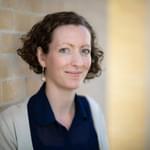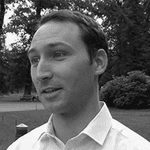Event Recording:
Net zero targets are proliferating across the world, covering not only countries but also business, investors, cities, states and provinces, universities, and many others.
But are these targets credible? And how can we ensure they lead to change? A new report sheds light on both the scope and, critically, the quality of the groundswell of net zero targets globally.
Join Professor Thomas Hale, Blavatnik School of Government, Dr Aoife Brophy, Saïd Business School & Dr Steve Smith, Net Zero Initiative, in the ninth talk of the Oxford net zero: climate in the balance series of discussions.

Professor Thomas Hale
Associate Professor of Global Public Policy
Dr Thomas Hale’s research explores how we can manage transnational problems effectively and fairly. He seeks to explain how political institutions evolve – or not – to face the challenges raised by globalisation and interdependence, with a particular emphasis on environmental, economic and health issues.
He holds a PhD in Politics from Princeton University, a master's degree in Global Politics from the London School of Economics, and an AB in public policy from Princeton’s Woodrow Wilson School. A US national, Dr Hale has studied and worked in Argentina, China and Europe. His books include Beyond Gridlock (Polity 2017), Between Interests and Law: The Politics of Transnational Commercial Disputes (Cambridge 2015), Transnational Climate Change Governance (Cambridge 2014), and Gridlock: Why Global Cooperation Is Failing when We Need It Most (Polity 2013). Dr Hale leads the Oxford COVID-19 Government Response Tracker.

Dr Aoife Brophy
Departmental Research Lecturer in Innovation and Enterprise
Aoife’s research focuses on understanding what systemic environmental challenges such as the climate crisis, and associated system transitions, mean for business.
Aoife holds a joint appointment between the Smith School and Saïd Business School. Aoife was previously a senior researcher at the Group for Sustainability and Technology (SusTec) at ETH in Zurich. She received her PhD from the Judge Business School, University of Cambridge and her MA from the School of Advanced International Studies, Johns Hopkins University.
Aoife studies the role of business in contributing to system transitions for sustainable development. Her research focuses on new business models and forms of collaboration between different organisations (public, private and non-profit) that are required to support sustainable system transformations. Her work spans a range of contexts including research on utilities in the energy transition, sustainable districts, circular economy, and energy access in sub-Saharan Africa.
She has recently finished leading project RISE, Renewable Innovative and Sustainable Electrification, funded by the ESRC on off-grid energy in sub-Saharan Africa.

Dr Steve Smith
Executive Director, Oxford Net Zero
Dr Steve Smith joins the Smith School of Enterprise and the Environment from the UK Department for Business, Energy and Industrial Strategy (BEIS) where he co-led the Climate Science Team for two years. He played a key role in the legislation of the Net Zero emissions target last year, and on developing the Government's approach to greenhouse gas removal. As well as advising ministers and policy teams he oversaw several areas of climate research, including the Met Office Hadley Centre Climate Programme, the Greenhouse Gas Removal Programme co-funded with UKRI, and understanding of carbon sources and sinks on land for the UK emissions inventory.
Before joining BEIS, Steve was Head of Science at the Committee on Climate Change. There he was involved in setting the UK's 2050 target and carbon budgets, as well as starting up the committee's work on climate adaptation. He gained a PhD in atmospheric physics from Imperial College London after studying Physics at Oxford. He is a fellow of the Royal Meteorological Society and of the Cambridge Centre for Science and Policy.
Keep in touch
If you found this page useful, sign up to our monthly digest of the latest news and events
Subscribe